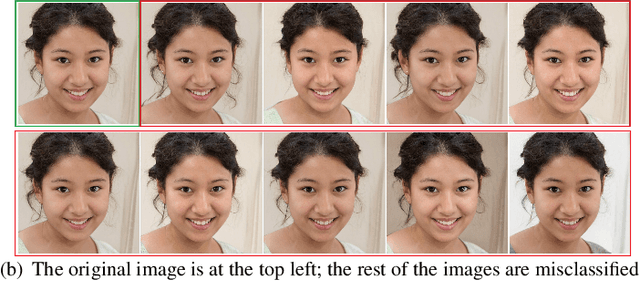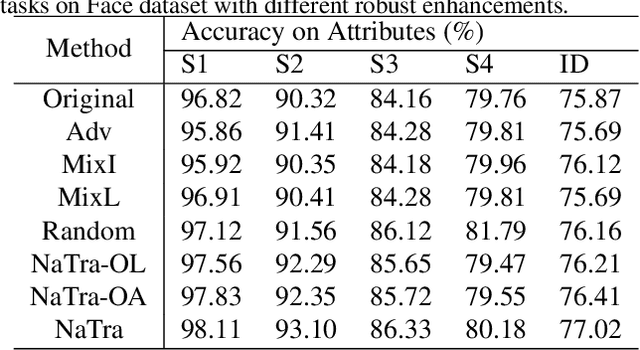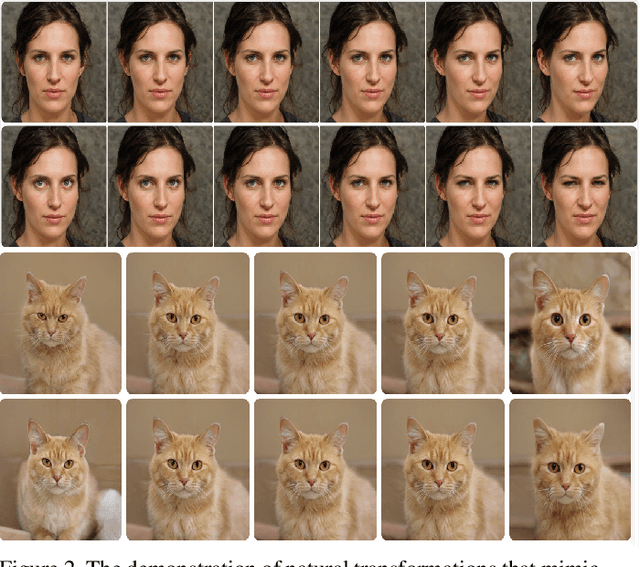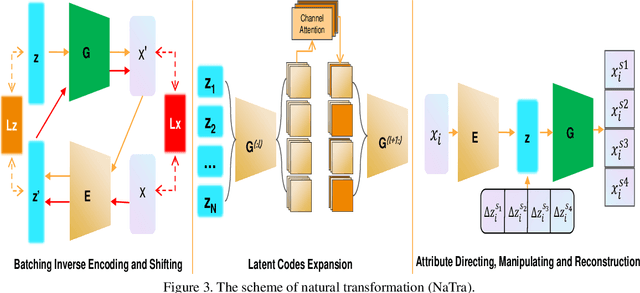Robust Training Using Natural Transformation
Paper and Code
May 10, 2021



Previous robustness approaches for deep learning models such as data augmentation techniques via data transformation or adversarial training cannot capture real-world variations that preserve the semantics of the input, such as a change in lighting conditions. To bridge this gap, we present NaTra, an adversarial training scheme that is designed to improve the robustness of image classification algorithms. We target attributes of the input images that are independent of the class identification, and manipulate those attributes to mimic real-world natural transformations (NaTra) of the inputs, which are then used to augment the training dataset of the image classifier. Specifically, we apply \textit{Batch Inverse Encoding and Shifting} to map a batch of given images to corresponding disentangled latent codes of well-trained generative models. \textit{Latent Codes Expansion} is used to boost image reconstruction quality through the incorporation of extended feature maps. \textit{Unsupervised Attribute Directing and Manipulation} enables identification of the latent directions that correspond to specific attribute changes, and then produce interpretable manipulations of those attributes, thereby generating natural transformations to the input data. We demonstrate the efficacy of our scheme by utilizing the disentangled latent representations derived from well-trained GANs to mimic transformations of an image that are similar to real-world natural variations (such as lighting conditions or hairstyle), and train models to be invariant to these natural transformations. Extensive experiments show that our method improves generalization of classification models and increases its robustness to various real-world distortions
 Add to Chrome
Add to Chrome Add to Firefox
Add to Firefox Add to Edge
Add to Edge